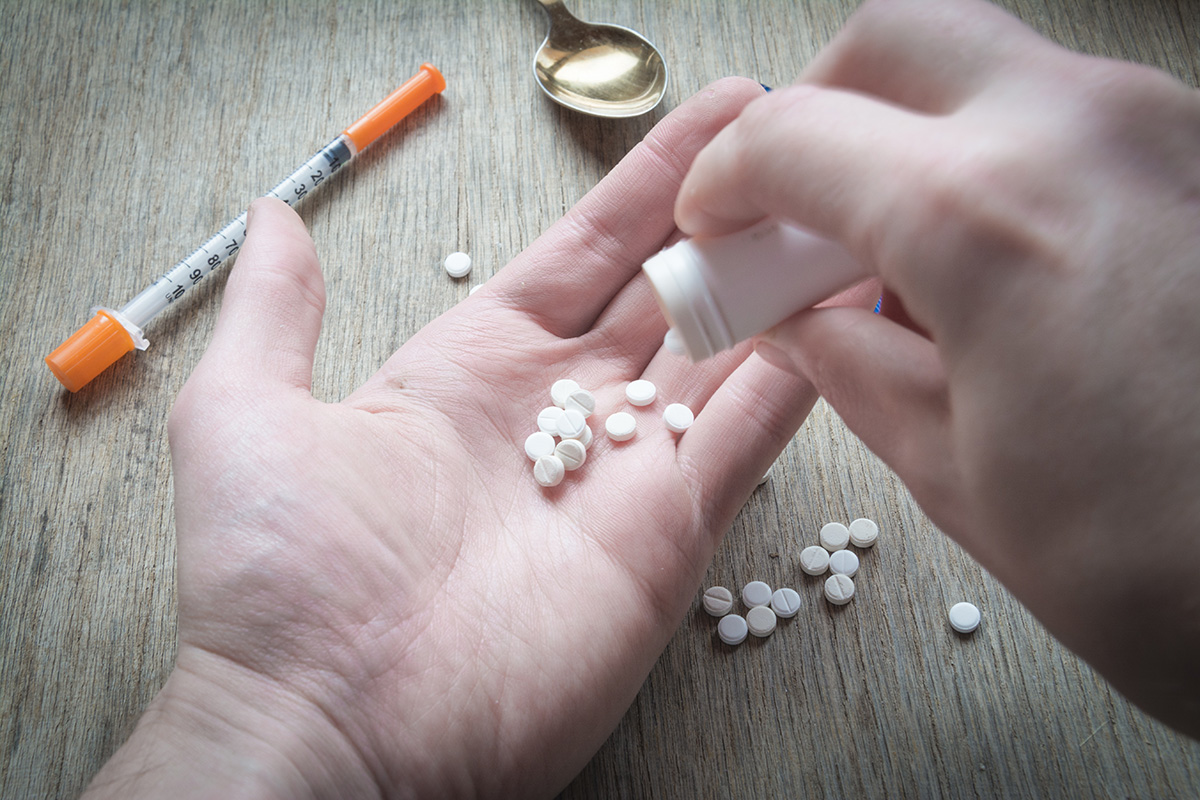The World Health Organization defines substance abuse as “the harmful or hazardous use of psychoactive substances, including alcohol and illicit drugs.” According to the Merriam-Webster dictionary, substance abuse can be defined as “long-term, pathological use of alcohol or drugs, characterized by daily intoxication, inability to reduce consumption, and impairment in social or occupational functioning; broadly, alcohol or drug addiction.” While all of these definitions are true, they are missing the simple core of what substance abuse is. The use of drugs, alcohol, household chemicals, or any kind of substance which can induce intoxication, outside of its purpose constitutes substance abuse disorder. For example, when someone begins abusing opioid prescription painkillers, they are taking more pills more often than the prescribed dosing time.
If a prescription says one every twelve hours and someone takes two every four hours, that is substance abuse. Using household items to get high is substance abuse. Drinking to get belligerently drunk is also substance abuse. Substance abuse is not purely defined in terms of addiction. Substance abuse can cause addiction but does not always cause addiction. It will, however, always lead to some kind of complication. Substance use and substance abuse are not the same things.
Difference Between Substance Abuse vs. Substance Use
Substance use is any consumption of drugs or alcohol. It does not necessarily mean there is a problem. But substance use can commonly lead to addiction.
Substance abuse occurs when a person continues to participate in using a substance, even though it begins to cause negative consequences. Using the substance becomes the reason for problems. However, despite this, the person continues to use.
What Constitutes as Substance Abuse and Addiction?
This is a vague line that has not been definitively standardized yet. As the Merriam-Webster definition points out, substance abuse has many of the characteristics a fully developed addiction does:
- Daily intoxication: Needing to and/or wanting to get high or drink every single day is a sign of addiction. The body and the brain become chemically dependent on the influence of substances, craving them psychologically, and creating symptoms of withdrawal physically.
- Inability to reduce consumption: A hallmark of addiction is being unable to stop using or drinking. It is difficult for an addict or alcoholic to stop using drugs and alcohol once they have become chemically dependent.
- Impairment in social or occupational functioning: Addiction doesn’t just affect the addict but everyone involved. Substance abuse affects relationships and jobs and the ability to be present or participate in either.
Addiction forms gradually and over time. Substance abuse is just one of the steps to developing an addiction. It is important to address unhealthy substance use early before it can develop into an addiction.
What To Do If You Have A Substance Abuse Problem
If you believe that you have what constitutes as a substance abuse problem, you do not have to wait until harmful signs of addiction develop. Treatment is available for all levels of substance abuse to help you find the tools you need to live free of drugs and alcohol. Oceanfront Recovery offers a number of treatment therapy programs to help you recover from any stage of addiction. Some of the programs we offer include:
- EMDR Therapy Program
- Dialectical Behavior Therapy Program
- Cognitive-Behavioral Therapy
- Family Therapy Program
- Dual Diagnosis Treatment Program
- PTSD Treatment Program
Oceanfront Recovery is a treatment facility offering residential programs for substance abuse and dual diagnosis disorders. Our full continuum of care provides a transitional process to help the man in your life safely develop independence in recovery. For more information about how we can help your addiction, call us today at (877) 296-7477. We can help you discover what constitutes substance abuse.







